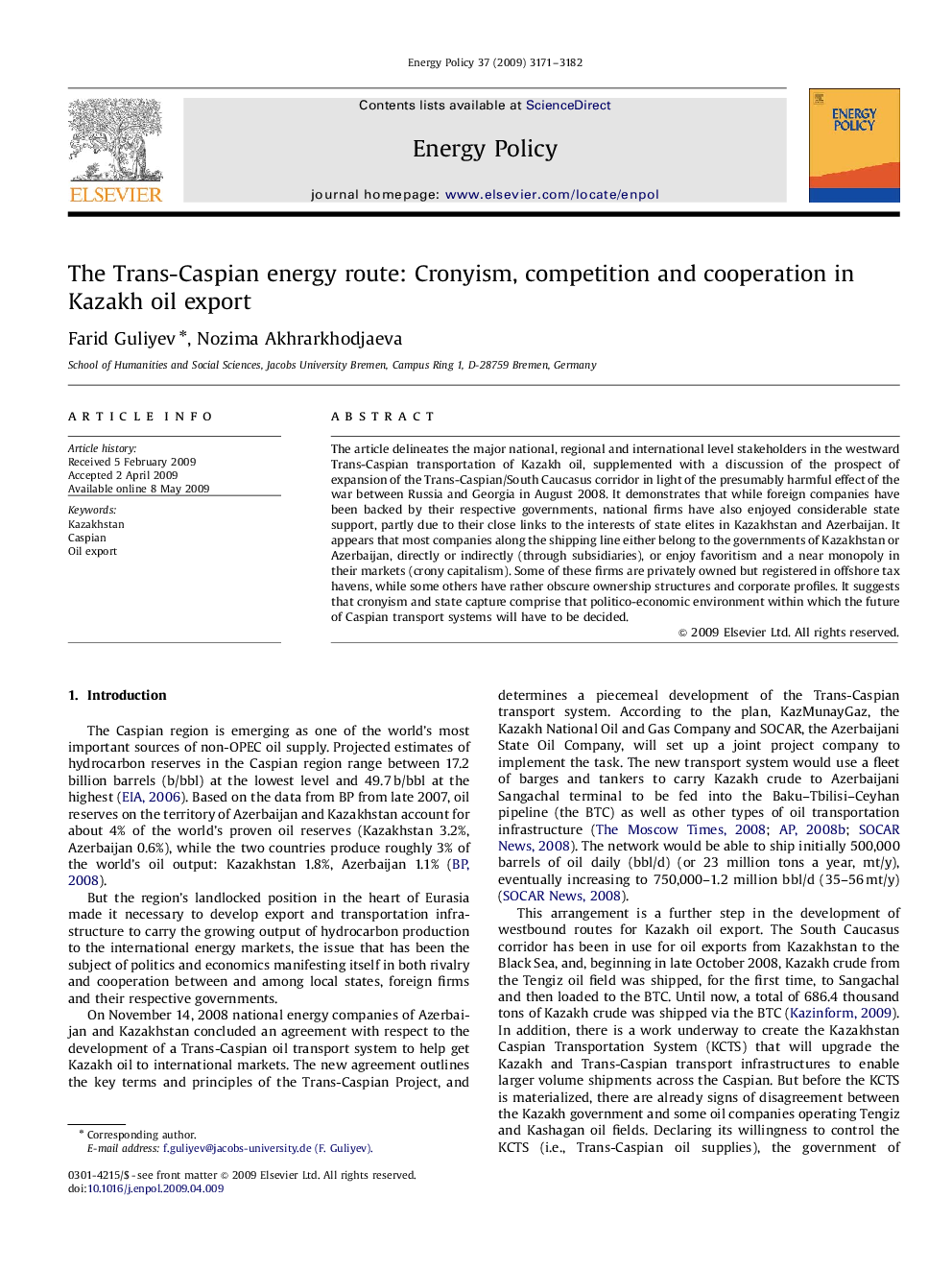| Article ID | Journal | Published Year | Pages | File Type |
|---|---|---|---|---|
| 996351 | Energy Policy | 2009 | 12 Pages |
The article delineates the major national, regional and international level stakeholders in the westward Trans-Caspian transportation of Kazakh oil, supplemented with a discussion of the prospect of expansion of the Trans-Caspian/South Caucasus corridor in light of the presumably harmful effect of the war between Russia and Georgia in August 2008. It demonstrates that while foreign companies have been backed by their respective governments, national firms have also enjoyed considerable state support, partly due to their close links to the interests of state elites in Kazakhstan and Azerbaijan. It appears that most companies along the shipping line either belong to the governments of Kazakhstan or Azerbaijan, directly or indirectly (through subsidiaries), or enjoy favoritism and a near monopoly in their markets (crony capitalism). Some of these firms are privately owned but registered in offshore tax havens, while some others have rather obscure ownership structures and corporate profiles. It suggests that cronyism and state capture comprise that politico-economic environment within which the future of Caspian transport systems will have to be decided.
